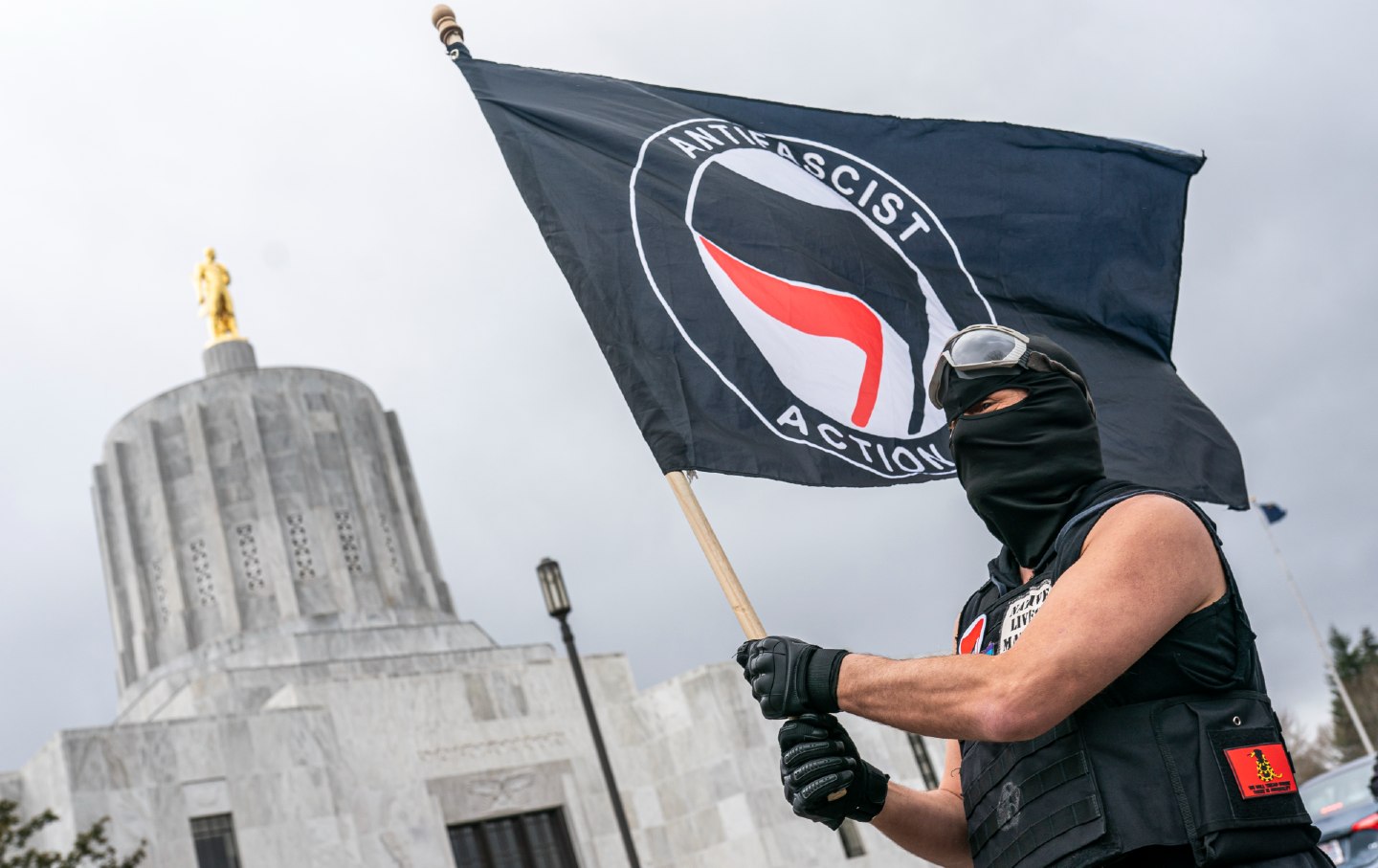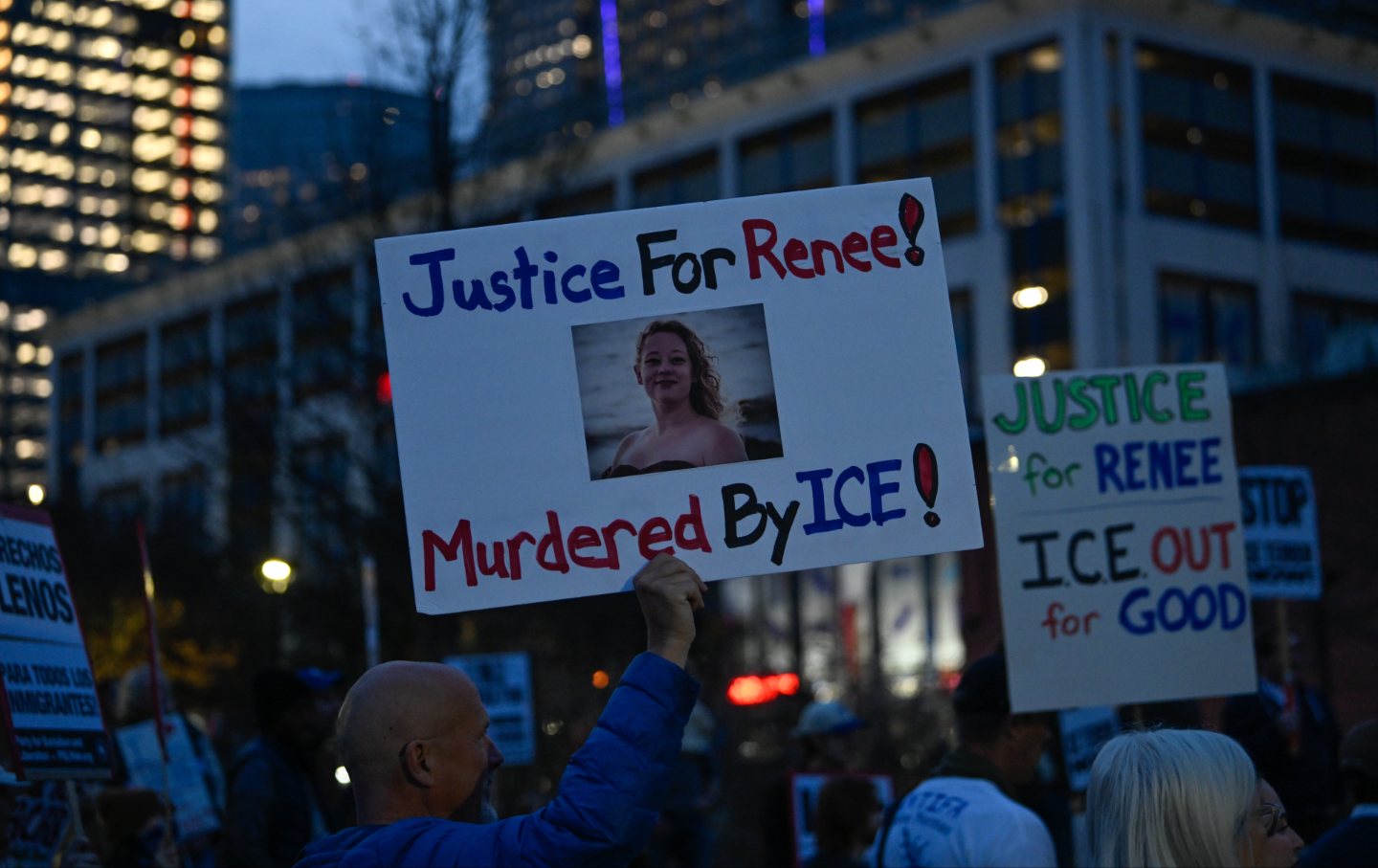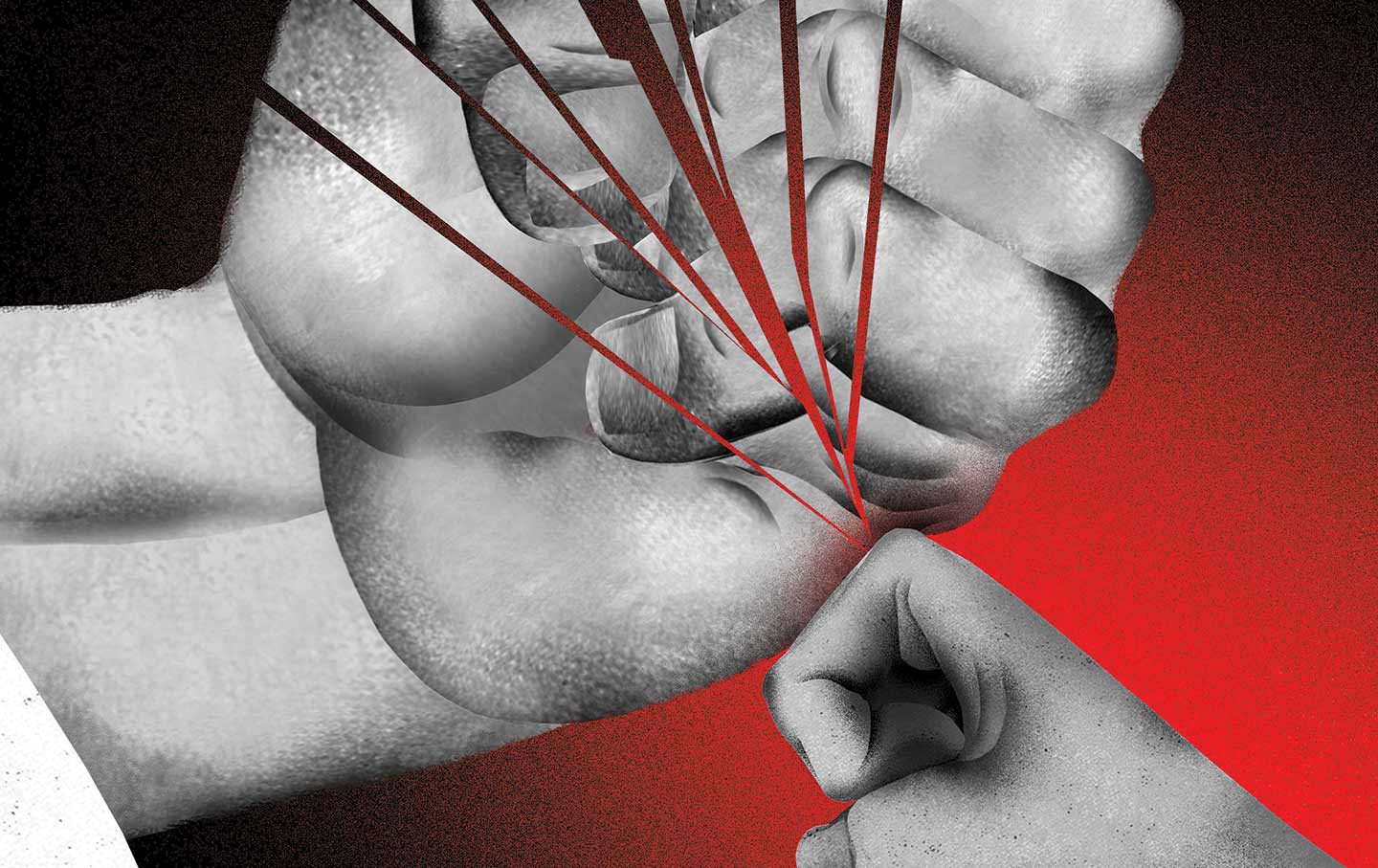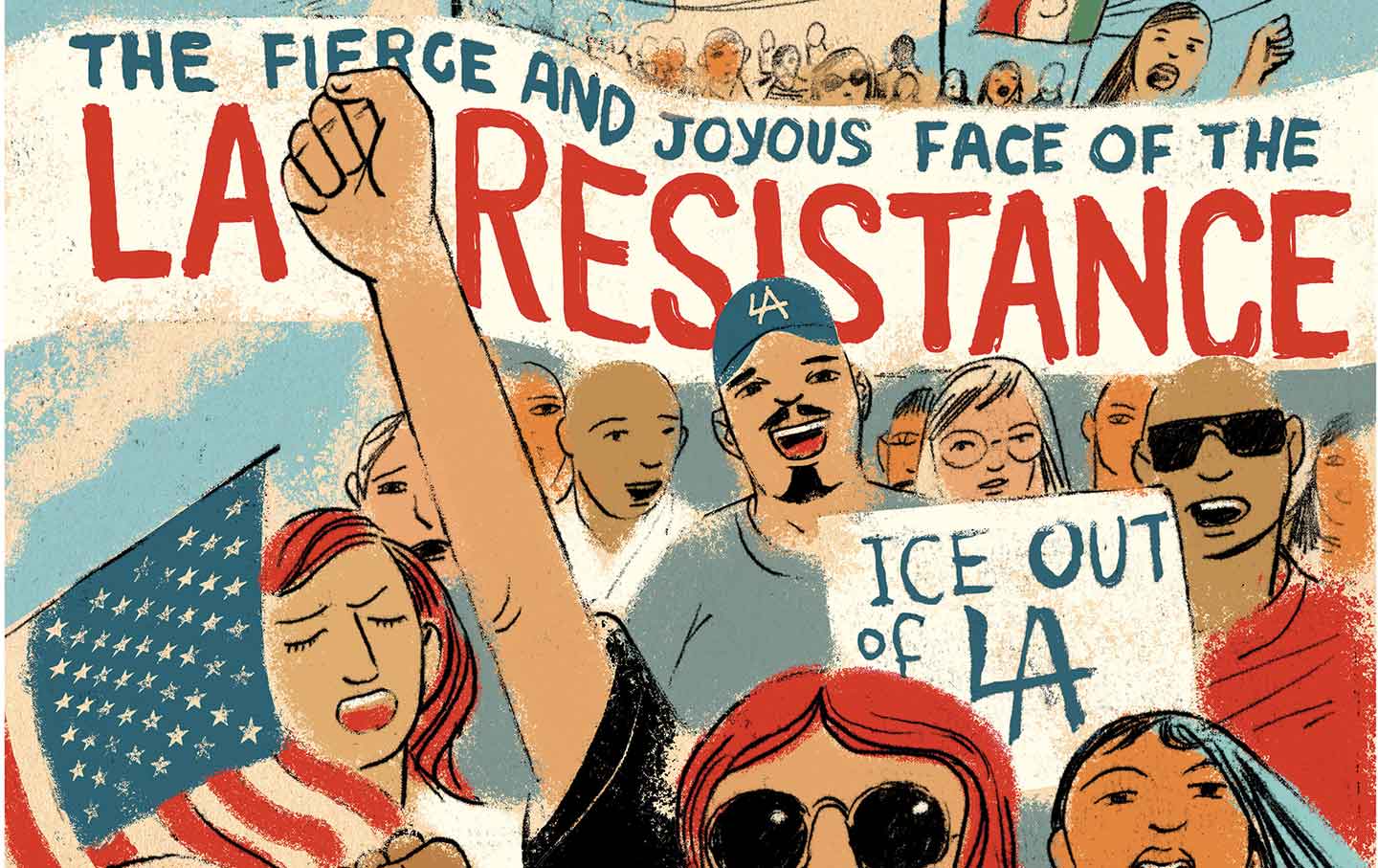Good Luck Finding Legal Representation if You Support Palestine
A law firm dumped me as a client because of my support of students’ right to protest Israel’s actions. I’m far from the only one shut out.

Support Palestine? Good luck getting representation!
(Shutterstock)
Last February, two members of the Columbia University community filed complaints against me with the university’s Office of Equal Employment and Affirmative Action, charging that my defense of our students’ right to protest the ongoing genocide in Gaza created a hostile environment for Israelis on our campus. I immediately hired the best law firm I knew—Outten & Golden—to represent me, but five months later the firm dumped me as a client with no notice or explanation. I later learned from insiders at the firm that I was dropped as a client on the insistence of one partner in the firm. Clear ethical guidelines that govern the profession prohibit this kind of conduct: A firm can decide not to take on a client for pretty much any reason, but once they agree to represent a client, they can’t just abandon them because some lawyers in the firm express personal discomfort. Rather, the ethical rules state that the firm is required to exercise professional judgment “solely for the benefit of the client and free of compromising influences and loyalty.”
So clearly unethical was Outten & Golden’s decision to dump me that my lawyer resigned from the firm after being a partner there for 24 years, not wanting to be implicated in the blatantly unethical behavior of her colleagues. I then filed an ethics complaint against Outten & Golden with the Attorney Grievance Committees of the State Supreme Court’s appellate division.
Outten & Golden’s response in the media to the bar complaint makes it sound like a law firm is a business just like Macy’s or McDonald’s, where a proprietor can refuse service to any customer if continuing to serve them is bad for business. But the practice of law is different; unlike employees of a department store or restaurant, lawyers are bound by unique ethical obligations to their clients and to the profession. At the first meeting of the New York City Bar Association in 1870, New York Governor Samuel Tilden warned against viewing law simply as another way of a turning a profit and noted that the reasons for organizing into a professional body were to elevate the profession’s standards and to serve a higher public good. This included special and strong duties of loyalty to one’s clients—something Macy’s does not owe to customers who come into its store to buy clothes. When Paul Clement, a conservative lawyer with the firm King & Spalding, resigned as a partner from the firm in 2011 because some of his partners found Clement’s clients problematic, Clement wrote to the chairman of the firm:
I resign out of the firmly-held belief that a representation should not be abandoned because the client’s legal position is extremely unpopular in certain quarters. Defending unpopular positions is what lawyers do.The adversary system of justice depends on it, especially in cases where the passions run high. Efforts to delegitimize any representation for one side of a legal controversy are a profound threat to the rule of law. Much has been said about being on the wrong side of history. But being on the right or wrong side of history on the merits is a question for the clients. When it comes to the lawyers, the surest way to be on the wrong side of history is to abandon a client in the face of hostile criticism.
In 1961, Eugene Rostow, then dean of Yale Law School, delivered a speech at the annual meeting of the State Bar of California that chastised the legal profession for falling short in its duty to represent all people with legal needs, no matter the unpopularity of their cause. He specifically mentioned Japanese Americans in the 1940s, whose entire population was interned and whose land was confiscated; the many people accused of being Communists in the 1950s; and Black civil rights activists and white Freedom riders in the South who were routinely arrested for their activism challenging Jim Crow segregation.
In these moments, said Dean Rostow, the failure of lawyers to recognize the special role the profession plays in a functioning democracy “has given rise to grave concern throughout our history, when lawyers hesitated to accept clients who were violently unpopular, or were involved in controversies which aroused strong hostile feelings.”
The current moment has given rise to similar grave concerns. Anyone, like myself, who has defended the dignity and rights of Palestinians and suffers negative consequences as a result will find it almost impossible to retain a lawyer to represent them when they lose their jobs or are expelled from their university.
I filed the bar complaint against Outten & Golden not just for what they did to me, but also to cast light on the larger problem of law firms retaliating against law students and attorneys who may have participated in protests related to Israel’s actions in Gaza. As Dean Rostow put it, “The real problem, as I see it, is whether lawyers represent the law as officers of the court, or whether they are no more than paid agents for the interests and preconceptions of their regular and expected clients.”
Since last November, when students on campuses across the country began protesting the disproportionate response of the Israeli military to the October 7 attacks by Hamas, the beginning of what would turn out to be a genocide, I started to get calls from law students across the country. One was in her last year of law school and had accepted an offer to work at a large corporate law firm after she graduated. She’d received an email from the firm’s HR department, informing her that she would only be welcome to join the firm the following August if she signed a statement they had drafted disavowing any connection to Hamas. She had not been involved in any of the student protests or posted anything on social media about Gaza, rather, the firm’s problem with her was that she was Muslim and wore a headscarf/hijab. I suggested she ask the firm whether they were making every incoming new lawyer sign a similar statement, and when she did they said, “Nope, just you.” I told her that there was no question that she was being discriminated against on the basis of her religion, but if she filed a complaint against them she was unlikely to ever get a job in a big law firm. She signed the statement. Her experience was just the beginning.
Since the attack on Israel a year ago and the Israeli assault on Gaza that followed, law firms have rescinded job offers to law students and have fired newly hired attorneys who participated in protests or voiced support for Palestinians on social media. Some firms are now conducting background checks of law students who apply to work at law firms to determine if they participated in protests or were merely members of student groups that protested. Apparently, job candidates at certain firms, The New York Times admits, “could face scrutiny even if they weren’t using problematic language but were involved with a protest where others did.”
The legal community is being tested in the current moment in its commitment to its professed ethics and values, just as it was in the 1940s, ’50s, and ’60s. So far, the profession as a whole has failed this test. The Lawyers Committee for Civil Rights Under Law was founded in June 1963 at the request of President John F. Kennedy in order to mobilize the nation’s leading lawyers to represent civil rights activists arrested in the South because no other lawyers would do so. It may be that the time has come to create a similar organization to mobilize the nation’s leading lawyers to represent Palestinians and their allies, since almost no one in the legal community is willing to do so.
Editor’s Note: This post originally stated that the author filed an ethics complaint against Outten & Golden with the New York State Bar. Her complaint against the firm was filed to the Attorney Grievance Committees of the State Supreme Court’s appellate division. This post has been updated to reflect this correction.








